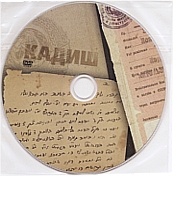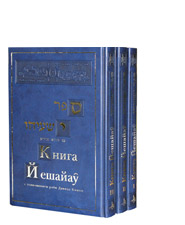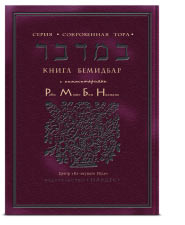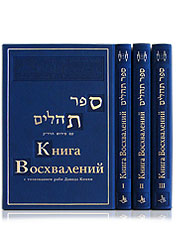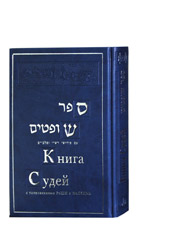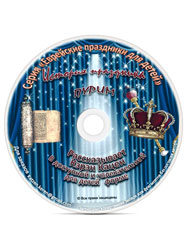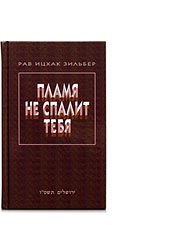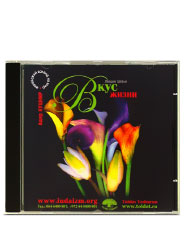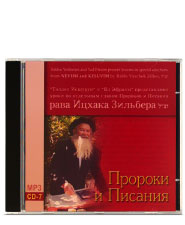
The Memoirs of Rav Yitzchok Zilber zt"l "To Remain A Jew" - Continued
I tried to get to the synagogue by 6:30 AM, daven, learn Gemara, and go to work
I become BAR MITZVAH
What does it mean to become bar mitzvah? From the age of thirteen a Jewish boy is mandated to keep mitzvahs. From his thirteenth birthday onward he can be counted in a minyan as an adult.
Forty Jews gathered for my bar mitzvah — a large number in those times. I prepared a derashah, I remember it even now.
It was all done quietly. People were afraid of the government. (After mine there were no more bar mitzvahs in
A few days later, the government expropriated “extra living space” from the owner of the house. The extra space was, of course, our apartment.
Here we were again on the street. Autumn was approaching and we were without shelter. My mother went to sleep at the home of some Russian widow; some Jews who knew us took me. My father also was picked up by somebody. I did not always know where my parents were sleeping.
All our possessions, including our sefarim,[1] were left out in the yard of our former apartment, under the open sky. It began raining and I worried about all my father’s valuable books and rare manuscripts. I asked an old Russian woman from a neighboring house (I did not know her, I had just seen her on the street), “May I leave books with you for a month or two?” She agreed.
After the High Holy Days[2] we finally found an apartment. I went back to the woman and asked for the books.
“Oy,” she said, “I am sorry. It was cold and I used them to keep the fire going in the stove.” She had burned all the books.
The stress felt in the Jewish community was terrible: religious people did not know who among them was an informer. It could be the person you least expected. One time people gathered for a minyan. The Torah was taken out but nobody dared step forward and read from the it[3]. Of those present, two people new how to read it[4] but they were afraid of being reported. It was a very painful sight. I had turned thirteen by then, so I stepped forward. This was the first time I read from the scroll for the community.
Work
I started to work when I was fourteen. According to the law, teenagers worked fewer hours than adults (six instead of eight hours a day). I found a place where they agreed to hire me and not make me work on Shabbos. For that I had to work not from 8:00 AM to 2:00 PM as the law required, but from 8:00 AM till 8:00 PM — twelve hours a day, sixty hours a week instead of thirty-six.
I tried to get to the synagogue by 6:30 AM, daven, learn Gemara, and go to work. My job was to fix Primus and kerosene stoves, record players, and bicycles. I mastered the skills diligently and became an excellent worker: I am a sixth-degree lathe operator [5] by profession — no joke!
From those times I remember one strange story. I did not go to work for three days in a row: Rosh Hashanah fell on Thursday and Friday, and then Shabbos came. That Sunday (we worked on Sundays) I was about to go to work, but my mother would not let me. This was unusual for her; usually she would tell me to hurry up.
“Why shouldn’t I go?” I asked.
“I feel in my heart you shouldn’t go today,” she answered.
I started to worry. “I missed three days already and they are always threatening to fire me.”
But my mother insisted and so I stayed home.
That day there was a fire in the shop. Everything burned down: the building, equipment, and the things awaiting repairs. I had been spared: but in my heart, I was more afraid of my boss and of losing my job than I was of the fire. Were he to send me to a burning building I wouldn’t have dared to refuse.
I worked in the shop for three years, from 1931 to 1934. In 1934, after Sergei Kirov’s murder (which was instigated by Stalin in order to start the purges of Trotsky’s followers and other supposed enemies of the state), I could not continue to avoid working on Shabbos. Everybody around me at work became very involved in my life. They asked questions about my parents, tried to convince me to work on Shabbos, and lectured me that everything I was taught at home was wrong — that a new life was bubbling around me and that I was being held back by the past, and so on. They lectured me for four weeks, but I did not work on Shabbos for those four weeks. The next Monday I was fired. I was then seventeen.
At that time in big cities there began a campaign to check everyone’s documents. Everybody was asked to submit their identity papers. My parents were asked for their papers too. Their documents were then taken and “lost.” This, you understand, did not make our lives easier. Many people were forced to leave
This “post-Kirov” period was terrible. Thinking about what the future held, many people ended it all by throwing themselves under moving trains.




